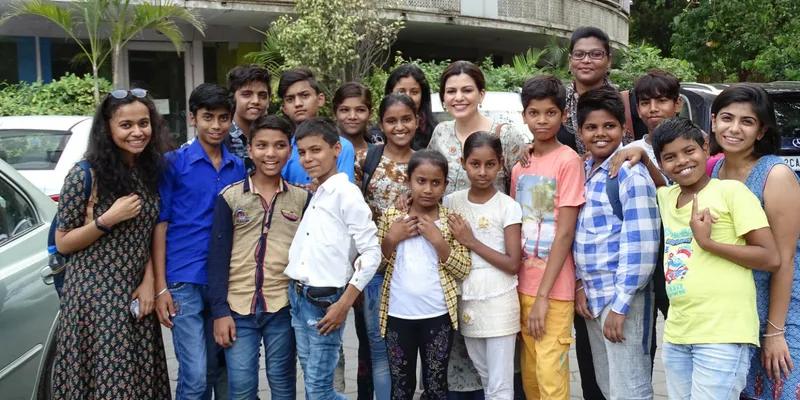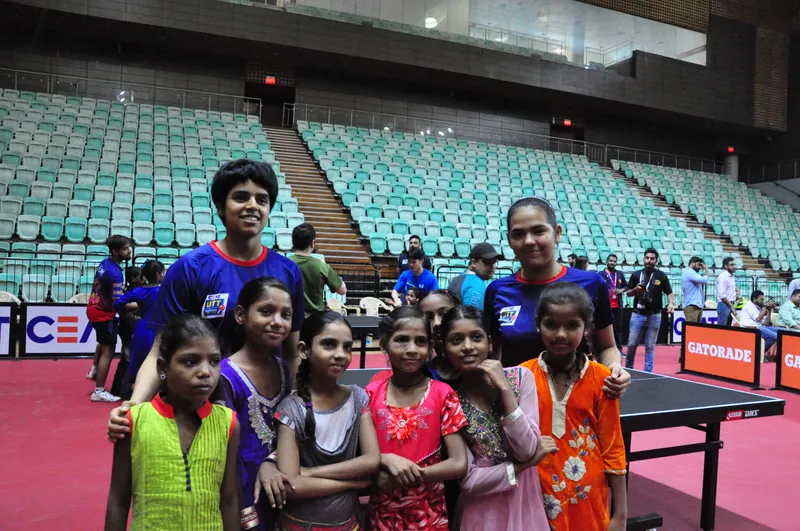‘Dreams don’t discriminate’ – a summer of dreams
10-year-old Nainika took a quick look around the army regiment in the Delhi Cantonment area and gasped in disbelief. “I didn’t know there were girls in the army!” she squealed, trying hard to keep her excitement under control. Ishan was amused to know that one needn’t be as tall as Amitabh Bachchan to join the army. Among other things that Nainika, Ishan, and their friends learnt, the most alluring bit was that getting into the army did not depend on the marks scored in the classroom alone.
These teeny revelations meant a lot for the group of children, especially since they did not have as many sources as the more privileged children had to learn about the many avenues that they could make a foray into. In fact, this chain of events was kick-started by a simple question to children from CRY (Child Rights and You) project areas, “What do you want to be when you grow up?” The answers were varied and delightful, punctuated with queries and demands for more details. We realized it was time to let the children and their dreams see eye to eye. This very idea gave birth to the campaign ‘Dreams don’t discriminate’, where children were encouraged to unabashedly dream out loud.
With this started a summer of dreams where the children visited the army regiment, police headquarters, and the air traffic control centre, and also inched their way into the world of journalism led by NDTV. They also tried their hand at some racquet-play with Table Tennis champions Dabang Smashers. All along this exciting journey, they never failed to amaze their mentors and teachers and kept their inquisitive eyes open to everything new and novel that came their way.

“To see the children so awestruck when we walked them to the air traffic control centre at the IGI airport was such a warm feeling,” said Tapesh Kumar, a pilot with Jet Airways who also does volunteer work at CRY. Tapesh’s father, Vinod Yadav, ex-manager, flight operations at Jet Airways, runs the Aviation Academy. He was so taken in by the spirit of the children that he promised to sponsor a child who wishes to join the academy and mentor him/her. He added, “For me, answering their innumerable questions was the highlight of the day. There is so much untapped potential in children that it’s high time we learn how to deal with their energy and channel it towards the right path.”
13-year-old Raju was rather inspired after listening to the talk by Dependra Pathak, Special Commissioner of Police. “I’m here to learn about how to become a police officer. That’s who I want to be when I finish my education,” said Raju. What would be his first command? Pat comes the reply, “To make Delhi safer for women.” For Sohit, corruption was a non-negotiable problem which needed to be eradicated. “I’ll make sure systems come clean; people who sell alcohol and drugs will also be put behind bars,” he declared.
‘How to be a journalist’ was another popular question from the children, for which NDTV gracefully consented to give answers. When they marched into the broadcasting rooms of the media house, more questions were bursting in their heads. “What course should I do to become a journalist?” was a collective question. Vishnu Som, a popular news anchor, dispersed the myths around this topic and stated quite simply to the children that it doesn’t matter what they take up in academics. If they have a flair for language and are inquisitive and opinionated, then the newsroom would be a great place to be.

“But what happens when something happens in the middle of the night?” echoed a concerned voice who loved his sleep. “Well, that’s the charm of this job. You’ll be up for it if you love your job,” Vishnu Som said with a smile. The children also briefly interacted with Nidhi Razdan and Bhairavi Singh, also news anchors who are well-known among audiences.
16-year-old Komal, who loves debates, said that being a journalist for digital media will likely suit her best. “I’ve always been in awe of how they (journalists) handle the language, their command over it, and how confident they appear on TV. I want to be like them because I know that what they do matters; they have the knowledge that, when dispersed, impacts people,” she said.
Not to leave sports behind, the children’s final stop was Dabang Smashers’ table tennis court. Captained by Sathiyan Gnanasekharan, who is a recognized player in the field, the team has a set of highly skilled players, including India’s number one woman player Manika Batra. Some of the children had only ever seriously watched cricket and were a little reluctant to open up to a new sport, but Team Dabang Smashers broke the ice as easily as serving that perfect ace, and the children were smitten right away. In no time, racquets were passed, shots were taught to be executed, and the children got busy taking turns to give a cracking shot.

“How do you keep winning matches?” inquisitive voices prodded Sathiyan, who took the question well in his stride and said, “It’s more important to play a good game than focus on winning every time, guys. You will win when you are good at it,” he told the children. “Interacting with the children, teaching, and playing with them turned out to be a great experience; we were so pleased to see their happy faces,” said Manika Batra, who indulged with the children for long after her practice session.
These visits not only opened many doors of possibilities for the children but helped eradicate many myths – even gender-based ones – regarding numerous fields of work. It also starkly brought to focus that a discussion on choosing a career path wasn’t as easily available to this group of children. What is so readily available through class projects and field visits for a section of children in our society almost completely eludes another. It’s time we call out this disparity and address the unavailability of such opportunities for the children who aren’t among the privileged lot.
Interactive classrooms in public educational systems, a more practical approach to learning, and better resource utilization are all inevitable factors for the children to grow up in an environment that opens many possibilities for them. After all, dreams don’t come true if you sleep on it.
Soha Moitra is Regional Director – North at CRY.
(Disclaimer: The views and opinions expressed in this article are those of the author and do not necessarily reflect the views of YourStory.)







